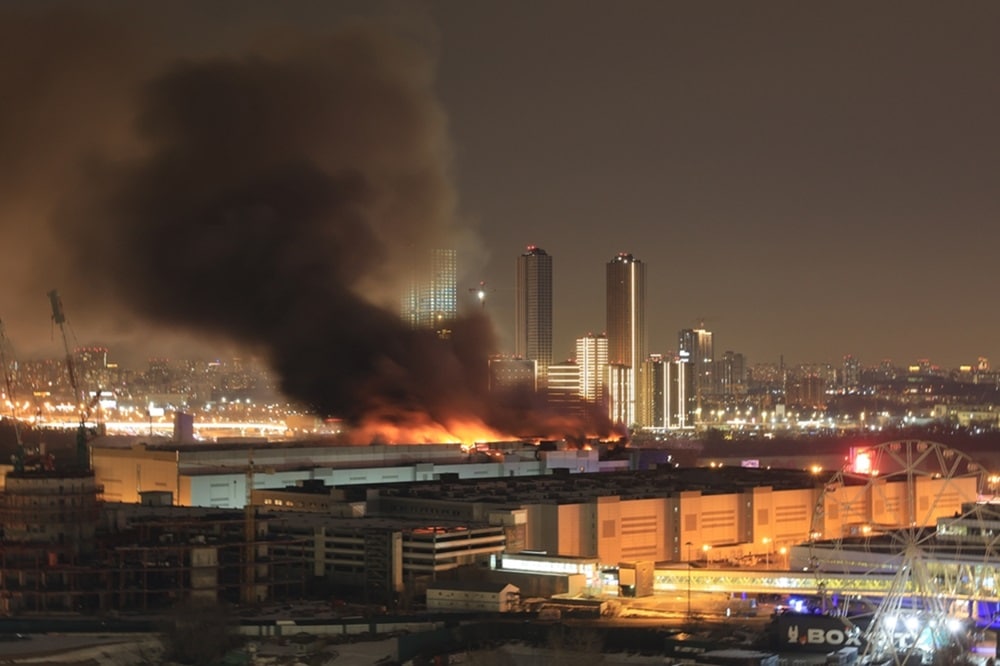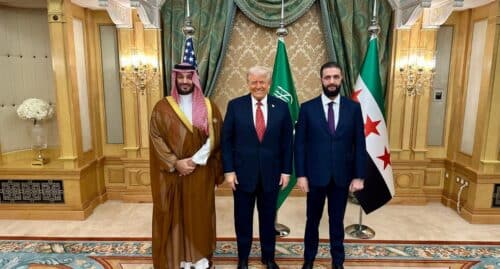
The brutal assault against the audience that was seating itself ahead of a concert in a Moscow suburb was an Islamic terrorist attack. Some 137 persons lost their lives in this attack, which was the most brutal in Russia in the past 20 years.
ISIS has claimed responsibility for the attack, first through the organization’s news agency – A’maq – which caused a Russian response claiming this was “fake news”. Russia tried to link the attack to Ukraine using every means at its disposal. Subsequently it transpired that the attack was perpetrated by an offshoot of ISIS, the “Islamic State – Khorasan” (ISIS-K), which is the organization’s branch in Afghanistan, Iran and Pakistan. It is one of the group’s most active branches in recent years. In addition to that, the modus operandi – armed men carrying automatic weapons storming a building – is consistent with similar ISIS attacks
Why has ISIS-K attacked Russia?
As a rule, ISIS-K is the most vigorous and consistent branch of the Salafi organization when it comes to attacks within Europe. ISIS-K has planned 21 attacks in nine countries this past year, as opposed to eight in the previous year.
This murderous branch, which has been under pressure by the Afghan special forces and the American forces, took advantage of the United States’ withdrawal from Afghanistan in 2021 to strengthen itself and recruit more fighters in each one of Afghanistan’s 34 provinces.
The American withdrawal from Afghanistan has also been exploited by Russia to broaden its influence in the south-central Asia region. Russia has strengthened its ties with Iran on the one hand and with the Taliban regime in Afghanistan on the other hand. This has of course incensed ISIS.
Just recently, the Taliban sent Russia its first military attaché, Ahmad Yasser, son of one of the organization’s senior leaders. The Taliban, through military cooperation, is interested in strengthening relations with Moscow, which on its part is interested in increasing its influence in the region.
Both ISIS in general, and the Khorasan Province in particular, have long been declaring their intention to attack Russia. They mentioned the past occupation of Afghanistan by the Russians in the 1980s and the long history Russia has of operations against Muslim communities in Russia, particularly in the Chechnya area. In addition, they mentioned Russia’s support for the brutal regime of Bashar Assad in Syria.
ISIS has launched various attacks in Russia between 2016 and 2019, while other attacks were foiled between 2021 and 2023.
Another piece of the puzzle is that most of the ISIS-K fighters that have been arrested in the past two years in Europe have been Russian nationals of persons of central Asian origin (like the Tajik terrorists that carried out the attack in the Moscow concert hall).
The recent arrests took place two weeks ago with the Russian authorities claiming to have foiled a planned attack on the Moscow Choral Synagogue.
Last month, a Russian citizen was accused of contacts with ISIS and was arrested in Poland, while another was arrested while working on the construction of a nuclear facility in Turkey.
Earlier this month, the United States and five other countries provided intelligence to the Russians warning that the ISIS-K was planning attacks in Moscow. These warnings were ignored by the Kremlin, which alleged they were intended to discredit Russia.
In recent years, most of the ISIS-K attacks have been in Afghanistan, where the majority of those were aimed at the Shiite Hazara community there.
The most outstanding attacks by ISIS-K are, for example, the suicide attack outside the Kabul airport in August 2021, at the height of the US evacuation, which resulted in 170 civilians and 13 US service personnel dead.
Another such example is an IED attack on the Russian embassy in Kabul, in September 2022, in which at least six people were killed.
ISIS-K also carried out a suicide attack in Kerman in Iran, in January 2024, which killed almost 100 people at a ceremony marking the fourth anniversary of the killing of the former commander of the Quds Force, Qasem Soleimani.
Iran and Russia even have a strategic alliance and they share many common interests, including the Iranian presence in Syria and the fight against ISIS. Both countries are also members of a coalition referred to as the “4+1” coalition, which includes Russia, Iran, Syria and Iraq, where the “+” represents the Hezbollah. The coalition was established in 2015. For the sake of this alliance, a center for the exchange of information about ISIS was established in Baghdad to enable the members to coordinate their operations against that organization in advance.
Besides Russia’s intervention to save the Assad regime and to fight ISIS, the radical Salafi organization regards Russia as an infidel crusader force, responsible for oppression of Sunnis in various places around the world – exactly like the United States.
Furthermore, Russia even supports Hamas and hosts Hamas delegations in Moscow. Why should this bother ISIS? Because ISIS is opposed to Hamas and it even ridicules it for having sided with Shiite Iran, which in the eyes of the Salafi organization is regarded blasphemous.
Moreover, ISIS’ ridicule of Hamas is due to its siding with Iran and also due to its support for Al-Qaeda, from which ISIS split off years ago. ISIS regards the Iran-Al-Qaeda-Hamas axis as a single unit to which it is vehemently opposed, all the more so since Al-Qaeda’s current leader, Saif al-Adel, is residing in Tehran.
A Conflict Far from the World’s Attention
In addition to its hostility toward Russia due to the events in Syria, the organization is also in confrontation with the Russians in an arena far from world media – the Sahel region in Africa.
Many organizations affiliated with ISIS have been active in this region for many years (for example the Boko Haram branches that have joined ISIS and other organizations such as ISIS Sahel and ISIS West Africa etc.). These brutal organizations operate in Mali, Niger, Burkina Fasso and even Mozambique in east Africa.
As in the case of Afghanistan, wherever the United States retreats, Russia comes in – thus also in these countries, when the United States and French troops withdrew from Chad, Mali and Niger. The Russians have provided these countries military assistance through the notorious Wagner Group for the fight against radical Islam on their territory. This is why ISIS has an interest in attacking Russia on its own territory, since its army is fighting against its fighters who are trying to expand the Islamic caliphate and take over Africa.
Despite the rivalry between ISIS and Al-Qaeda, the two organizations are gaining strength in these regions, far from world attention, such as the Sahel countries in Africa, the horn of Africa and even East Asian countries like the Philippines.
The West should be aware of the terror threat from these organizations and their branches and affiliates – the Moscow attack is a reminder that this threat is resurgent once again.
The continual growth of this deadly branch of ISIS – ISIS in Khorasan – ought to sound the alarm in the west regarding the struggle between radical organizations in remote regions, which are bound to strike out against the West.
The article was originally published on ynetnews
The views expressed in this article are those of the author and do not necessarily represent the views of the movement






